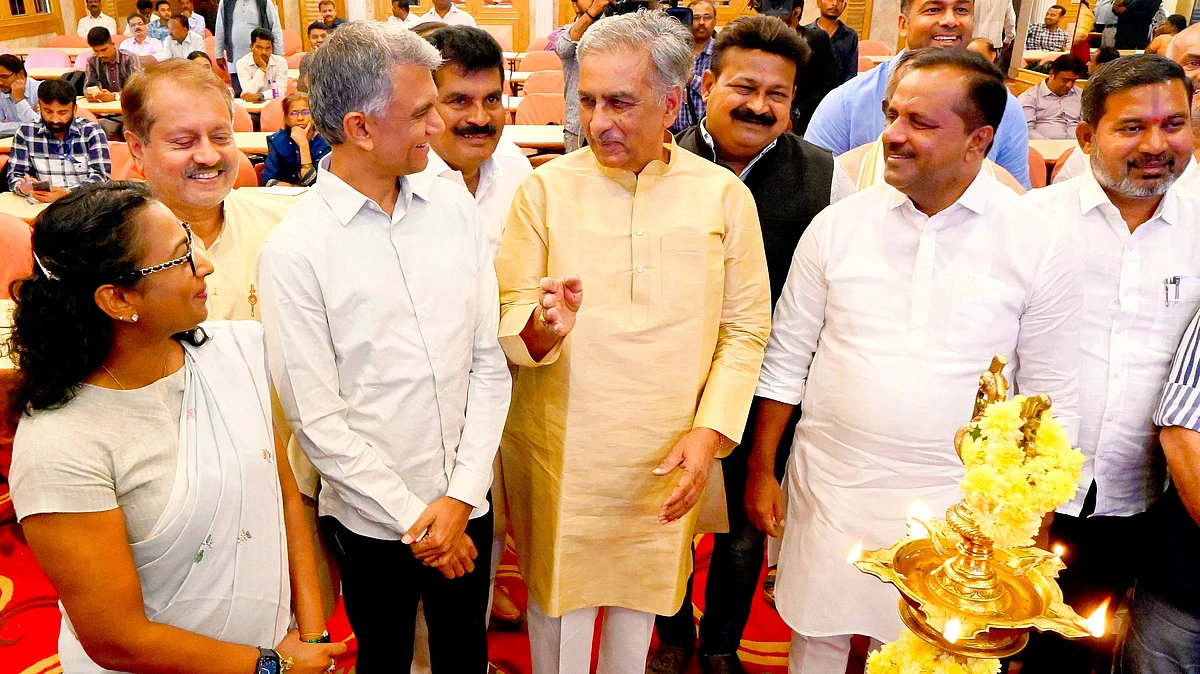Karnataka Budget session: how the speaker plans to lure MLAs in!
Karnataka Assembly speaker U.T. Khader has come up with a unique idea to get all 300 legislators to attend the state's Budget session

Karnataka Assembly speaker U.T. Khader has come up with a novel idea to get all 300 legislators — 225 MLAs and 75 MLCs (members of legislative Council) — to attend the state's Budget session beginning 12 February with an 'incentive' — a complimentary breakfast at the Vidhana Soudha (Assembly), to rope in all legislators at the start of the day and ensure their attendance.
Why has Khader been driven to come up with this unique scheme? Well, attendance in both Houses of the legislature has been a cause for concern for the speaker of the Assembly and chairman of the Council, particularly in the mornings. With Question Hour being the first item on the agenda, members whose questions have been listed for replies on the floor of the House are often the only ones present.
Instituting the best legislator award, or keeping a roster for members to sign in the mornings and afternoons having made no impact, Khader has now decided to ensure attendance through 'gastronomics'.
On Monday, 10 hand-picked restaurants will provide a sumptuous breakfast to MLAs and MLCs, with a spread featuring such delicacies as ghee thatte idli, ghee podi masala dosa, and open butter masala from Rameshwaram Café; varieties of rotis from Halli Mane, Malleshwaram; and benne dose from Davanagere Benne Dose. Other restaurants on the list include South Ruchi, IDC, Paakashala, JP Cordial, and Sona Caterers.
Speaking to National Herald, Khader said MLAs are typically ready by 8.00 am and after breakfast and meeting constituents, they go visiting ministers' residences or government offices. This results in them walking into the House late.
"If breakfast is served to them at the Vidhana Soudha, there are fewer chances of them going out, which will ensure attendance in the first half,'' he said. The speaker is also considering commencing the House at 9.00 am instead of 11.00 am, a decision which has to be taken by the business advisory council.
At present, outstation legislators who are given accommodation at the legislators' hostel are served breakfast from the in-house canteen. The Legislature Secretariat has contracted a caterer for lunch, available in the ruling and opposition lobbies. During the Budget session, lunch is usually hosted by a minister every day in the banquet hall of the Vidhana Soudha, and the cost is borne by the departments he/she holds.
On these occasions, the cuisine that is served belongs to the district the minister represents, such as north Karnataka Jolladda rotti oota (jowar roti and several types of dry chutneys and gravies typical of north Karnataka) and baale ele obattu oota (varieties of items served on plantain leaf with obbattu or holige, a kind of sweet chapati, being the highlight).
Usually, the onus of ensuring that legislators are present in full strength belongs to the chief whips. But there is more to the matter than mere attendance. Many MLAs sign the register and then breeze out of the Vidhana Soudha, ensuring they receive their sitting allowance of Rs 1,000 per day simply by signing the roster.
In February 2022, legislation was passed hiking the MLAs' salary and allowances by 50 per cent with a proposal to automatically increase the salary once in five years. Under the revised pay scheme, a legislator now earns Rs 2.05 lakh per month, which includes Rs 40,000 as basic salary, Rs 60,000 as constituency allowance, another Rs 60,000 as constituency travel allowance, Rs 20,000 as salary for personal assistants, Rs 5,000 for postal and Rs 20,000 as phone allowance.
Ahead of the Assembly elections in May 2023, a poll watchdog called Association for Democratic Reforms (ADR) released a report in April on the number of sittings the Assembly held from May 2018 to February 2023, as well as the MLAs in attendance.
The report covered MLAs from the state's 224 segments — including those who had resigned and those elected in subsequent bypolls. The findings were formulated using data on the Karnataka Assembly website and Right To Information (RTI) responses from the Karnataka Assembly Secretariat.
According to the ADR report, MLAs of the Janata Dal (Secular) had the highest attendance in Assembly sessions since 2018, while those from Congress had the lowest among the three major parties. The ADR said the Assembly was in session for 25 days per year on average, the longest being from 14 February to 30 March 2022, with 26 sittings.
Two MLAs — KS Lingesh of the JD(S) and Channappa Mallappa Nimbannavar of the BJP — had 100 per cent attendance, while two others from the BJP — G.B. Jothiganesh and Sanjeeva Matandoor — had 99 per cent each. The average attendance of 35 MLAs of the JD(S) from 2018-23 was 107 days, while the BJP’s 122 MLAs attended on 99 days and the Congress’ 76 attended on 95 days, the report noted.
Congress MLA N.A. Haris topped the list on the performance of MLAs by asking 591 questions and recording an attendance of 84 per cent, while chief minister Siddaramaiah, who was leader of Opposition then, asked ‘zero’ questions and recorded an attendance of only 30 per cent in the 150 sittings held. Then state Congress committee president and current deputy chief minister D.K. Shivakumar recorded an attendance of 39 per cent and asked 24 questions.
Khader said a panel has been constituted to evaluate the performance of MLAs in the House and the parameters include how much time they spend in attending House proceedings.
Follow us on: Facebook, Twitter, Google News, Instagram
Join our official telegram channel (@nationalherald) and stay updated with the latest headlines
